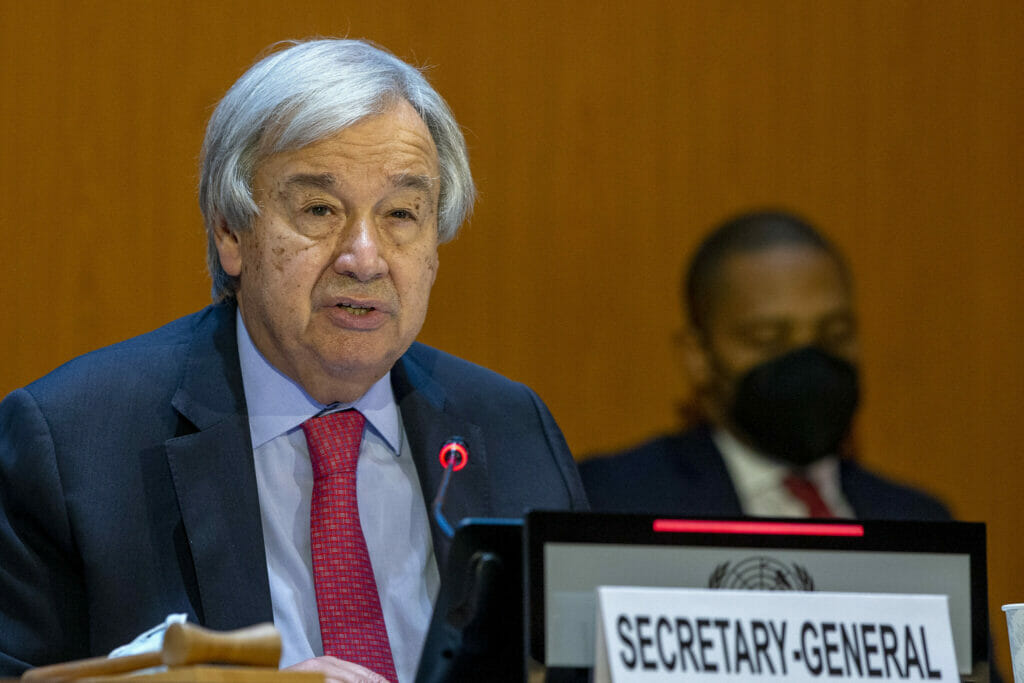UN Secretary-General, António Guterres has expressed deep concern over the restrictions imposed on travellers from southern African countries due to the emergence of the new Coronavirus (COVID-19) variant, Omicron.
Guterres, in a statement on Monday said, people of Africa should not be blamed for the immorally low level of vaccinations available in the continent.
He said they should not be penalised for identifying and sharing crucial science and health information with the world on Omicron COVID-19 variant.
The World Health Organisation (WHO) has listed Omicron as a “variant of concern” as a result of which countries around the world are now restricting travel from Southern Africa, where the new strain was first detected, and taking other new precautions.
WHO says it could take several weeks to know if there are significant changes in transmissibility, severity or implications for COVID-19 vaccines, tests and treatments.
On Friday, Canada banned travel from seven African countries over concerns about the spread of the Omicron strain, and Nigeria was not one of them.
The secretary-general commended the Government and scientists and health community of South Africa for acting early to identify the emergence of a new COVID-19 variant.
Guterres said he and others had long warned, low vaccine rates was a breeding ground for variants.
The secretary-general appealed to all governments to consider repeated testing for travelers together with other appropriate and truly effective measures.
He said this should be with the objective of avoiding the risk of transmission so as to allow for travel and economic engagement.
